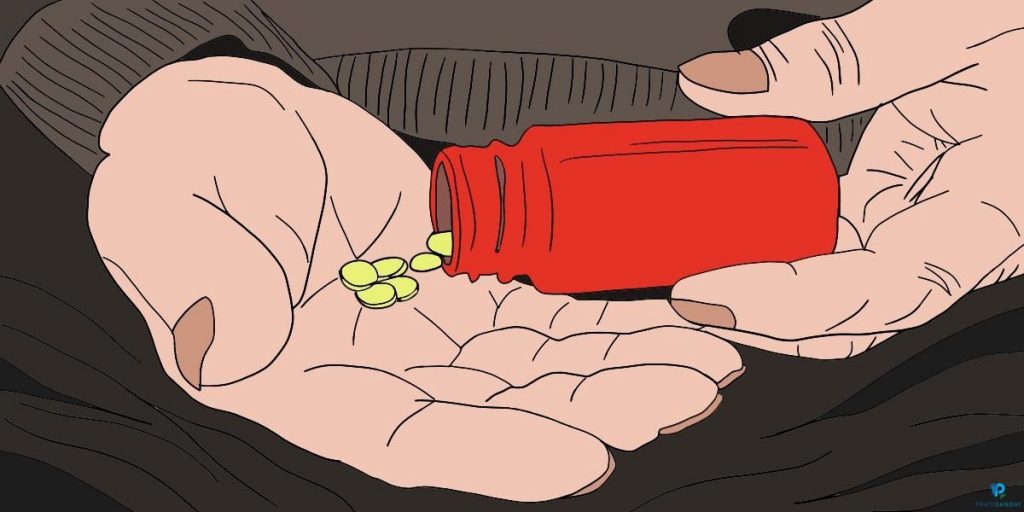Intimacy and Sexual Relations with People with Mental Illnesses
Physiological Importance of Intimacy
While most of us assume that intimacy is something we only experience physically, intimacy also depends on, and greatly impacts, our brains. In fact, mental wellbeing and intimacy are so closely related that each can affect the other.
Healthy and intimate interpersonal relationships are a large component of mental health. Close relationships can not only give you a strong support system to better manage mental illness, but the intimacy they provide can also help fight symptoms of certain mental health disorders.

Forms of Intimacy, and Effects of lack of their presence.
Emotional Intimacy is of the form in which patients feel comfortable while talking to their Significant Others about their feelings, emotions, and other qualitative mental processes. On the other hand, physical intimacy refers to a person feeling comfortable in engaging physically with one another, ranging from sex, to platonic things like hugs, or even handshakes. Humans are social creatures and are ultimately built to crave physical connection with others. Receiving and giving physical signs of affection can actually boost your mental health no matter the form in which you engage. In fact, research has found that those who are “touch-deprived” are more likely to experience and/or be victims of stress, anxiety, and depression.

Sexual experiences, in particular, can have a significant effect on mental health. During sex, the brain releases dopamine, serotonin, and oxytocin which are all neurotransmitters that boost feelings of happiness and relaxation, while also cutting stress hormone levels. This natural influx of chemicals can temporarily improve feelings of depression. It is one of the most aerobically engaging activities one can take part in, and thus even serves the purpose of exercising, and have been shown to have significant sleep benefits.
Challenges in discovering intimacy
It’s important to note, however, that while intimacy is beneficial for those who experience mental health issues, their disorders can sometimes make it difficult for them to engage in these forms of closeness.
Certain mental health issues or past experiences can cause intimacy avoidance, a condition in which a person is afraid of developing close relationships with others. This is typically caused by anxiety, a fear of abandonment or engulfment, or a history of abuse. It can manifest in a lack of commitment, the inability to express feelings, or relationship-sabotaging behavior like constant criticism and nitpicking. Some mental health disorders, especially depression, can also cause people to voluntarily distance themselves from loved ones out of fear that their presence negatively affects others. Or, sometimes they simply don’t have the energy to socialize and end up withdrawing from friends. Social isolation, however, can drastically reduce feelings of closeness or intimacy with loved ones and ultimately worsen other mental health symptoms.
Effects of Medication.
Certain psychological factors can also make it much more difficult for some people to engage in physically intimate acts like sex. In particular, depression and anxiety, as well as some of the medications used to treat them can lower libido and cause performance issues like erectile dysfunction or pain during sex. There are several ways you can address these issues from lifestyle changes to treatment or even online therapy. Above all, however, doctors recommend that you never stop taking your prescribed medications just to improve your sex life. Instead, speak with your doctor to find the right balance of treatment.

Root of these tendencies.
There is a part of the brain called the dopaminergic reward system that as the name says uses dopamine as a transmitter to reward some activities. This is a pretty ancient system and rewards behaviour that sustains us as a species, such as eating chocolates (sweet or fatty food), being warm and cosy and having sex. This system does more than rewarding behaviour; it also makes us want to repeat behaviours that we enjoy.
Not surprisingly, however, though, when one takes dopamine receptor blockers, such as antipsychotics, there is at least the potential for a problem. Almost all drugs used in psychiatry can interfere with a patient’s sex life, as can the mental illness itself. This can be very distressing. When we look at solutions, though, there is psychosexual treatment, and then there is the option to reduce the antipsychotic dose or change to a different antipsychotic medication: olanzapine, quetiapine and particularly aripiprazole may be better drugs to use as far as sexual function is concerned.
Therefore, there is no need to lose hope. All you have to do is believe in yourself, support those around you, and be ready to seek professional help!!
References:
Author

